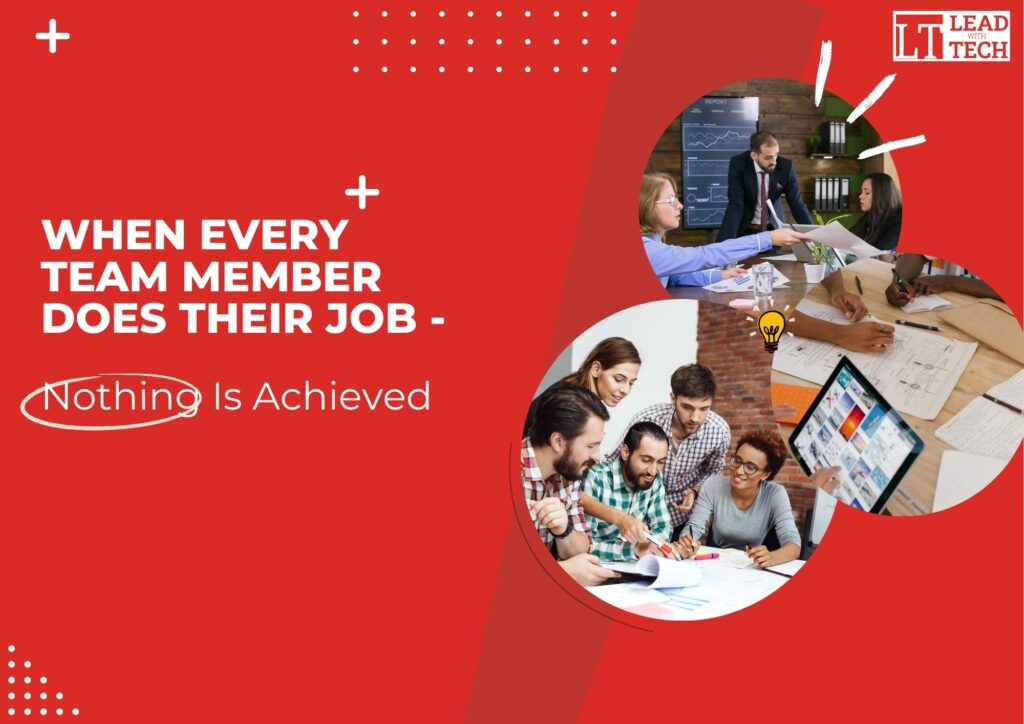A team where every member does their job perfectly and still end up where nothing is achieved. And in some cases, may fail to deliver the value the customer expects. Let us explain why.
Imagine you’re working in an agile team that includes a Scrum Master, developers, QA engineers, release engineers, and other members with business and technical roles. Each person carries out their specific responsibilities: developers write code, Scrum Masters oversee Scrum processes, QA engineers conduct testing, and release engineers coordinate releases.

Even though each team member is fulfilling their role, you may still face unexpected delays, late-night work to meet deadlines, dissatisfied team members, and other challenges.

The question arises: If everyone on the team is performing their tasks with perfect precision, why do issues with delivery or collaboration still occur? Why is that nothing is achieved even after all the effort? Surprisingly, these problems often seem more prevalent in such teams.
When every team member does their job – Nothing is Achieved!
Achieving as a Team
No matter how thorough our planning and detailed the architecture and deployment plan are, unexpected issues or overlooked details will inevitably arise. It’s crucial for the team to work together to address these problems promptly. If team members focus solely on their individual tasks rather than collaborating, these issues may not be resolved quickly, potentially leading to significant problems that could impact the brand or revenue.
Being a Team Member
So, how do you as an individual playing a role, can really play the team member in times of need?
There are 3 things you can do, irrespective of your role.
Expertise in your Core skill

Develop your core skills to a level where others recognize you as an expert, without you having to say it. Strive to be the go-to person for any issues in your area of expertise.
Let’s examine some behavioural aspects of a person with passion and a person with conviction: Build With Conviction, Not Passion .
Understanding of Secondary Skill

You should aim to have not just basic knowledge, but enough understanding to provide solution ideas that combine your core skills with secondary skills. In most cases, your similar experience or solution for a similar issue is what helps the team member. Someone stuck in the issue to figure a solution for current issue of why nothing is being achieved.
Helping others – A way to learn
When you help others with your perspective and try to answer their questions, you will end up learning more about the topic and increase your knowledge and become better equipped for future.
Conclusion
Working as a team required attitude and mindset of helping each other without expecting much in return is the way good teams work. Especially when there is hot issues impacting the business.
For more such blogs, stay tuned and subscribe here.